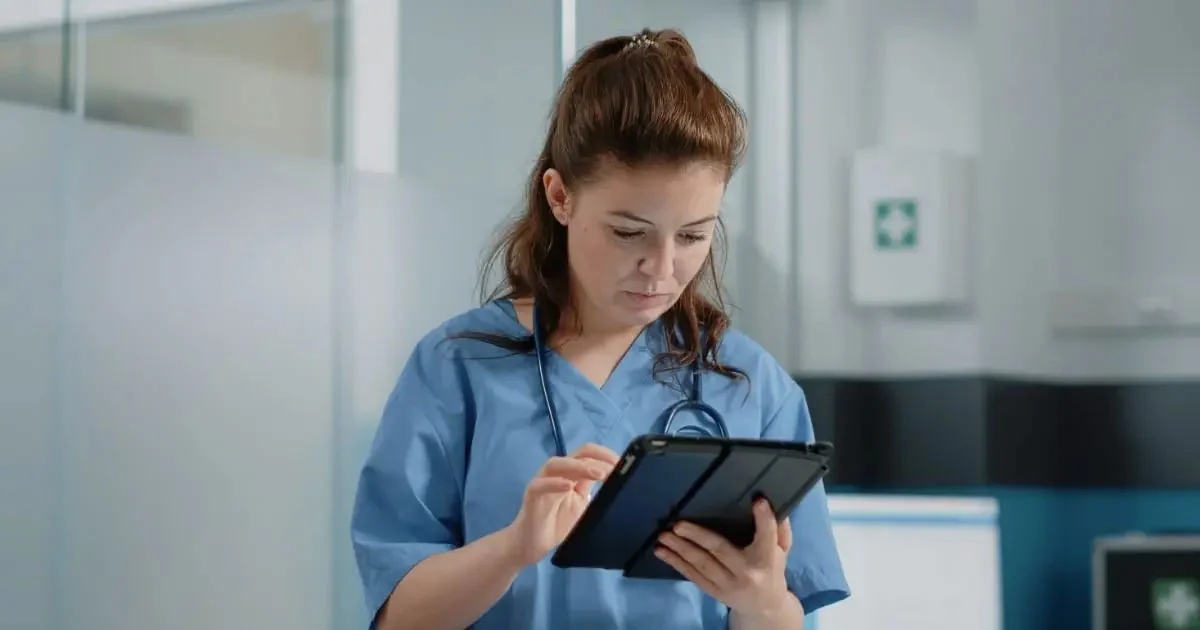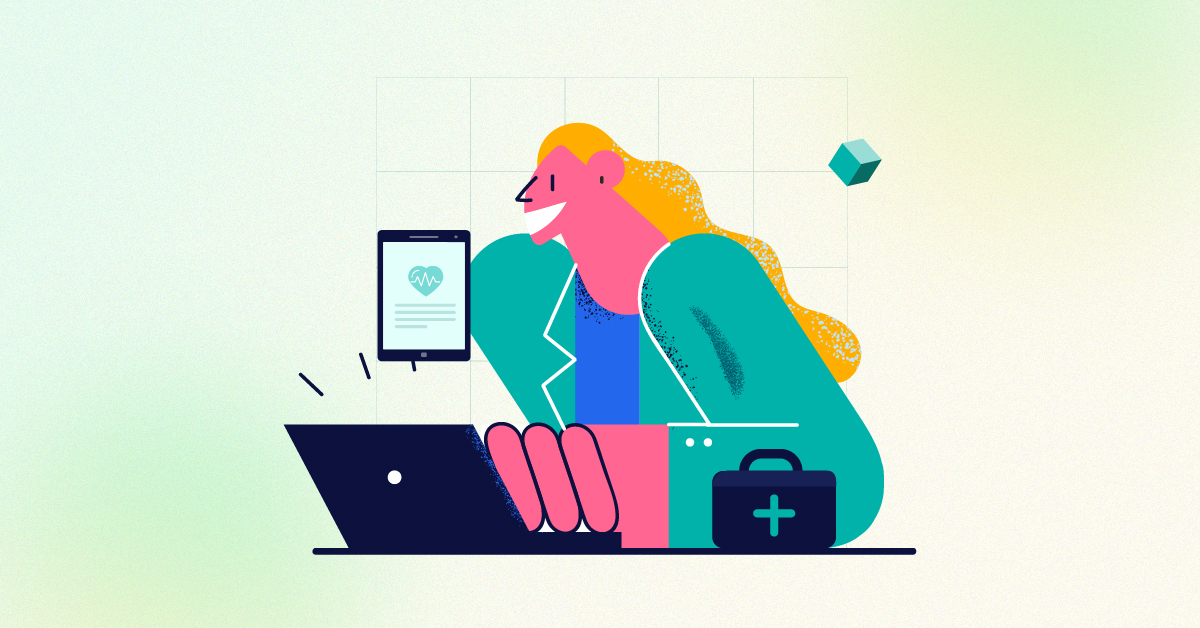A well-prepared and proficient healthcare workforce is at the heart of exceptional patient care. However, traditional approaches to healthcare training have often fallen short of adequately equipping professionals with the diverse and dynamic skills demanded by modern healthcare practices. As we delve into healthcare learning solutions, it becomes clear that there’s a pressing need to reevaluate training methods and embrace innovation in order to foster enhanced learning and development.
Imagine a surgeon entering a critical operation with the ideal combination of theory and practical skills acquired through an immersive experience. This underscores the essence of healthcare learning solutions – bridging textbook knowledge with real-world practice. Yet, traditional methods often leave healthcare professionals unprepared for the real deal.
Moreover, limited exposure to diverse cases, time constraints, and the struggle to keep up with medical advancements hinder traditional training. But fret not – innovative solutions are on the horizon, poised to revolutionize healthcare training. Imagine virtual worlds where realism meets medical scenarios, AI-driven personalized learning, the engaging power of gamification, and much more.
Technology-Driven Learning Solutions
Integrating technology into healthcare learning and development has opened new horizons, making the training of healthcare professionals more immersive, engaging, and effective. Below are some innovative tech solutions that are reshaping the landscape of healthcare learning strategies.
According to the PwC 2022 US Metaverse Survey, 58% of people want to connect with their healthcare providers using technology like virtual reality. This means that virtual reality and virtual reality training could become the next way to care for patients.
Virtual Reality (VR) and Augmented Reality (AR) Applications
- Simulated Medical Procedures for Hands-On Learning
Picture being able to practice difficult medical procedures without danger before entering the operating room. Virtual Reality and Augmented Reality make this possible. Medical trainees or healthcare professionals can simulate surgeries and other critical procedures, gaining invaluable hands-on experience without jeopardizing patient safety. This immersive approach enhances technical skills and cultivates confidence in current and aspiring healthcare professionals.
- Anatomy and Physiology Visualization
The intricacies of the human body’s anatomy and physiology can be challenging to grasp through traditional textbooks alone. VR and AR technologies provide a solution by creating interactive visualizations that allow learners to explore the human body in 3D. This level of immersion brings textbooks to life, making it easier for medical learners to understand complex structures and processes.
Gamification for Engagement and Skill-Building
The Grandview Research report says the healthcare gamification market was worth about $3.15 billion in 2022. It’s predicted to grow a lot, around 22.6% annually, from 2023 to 2030.
- Medical Scenario-Based Games
Gamification has proven to be a powerful tool for engagement and skill-building in healthcare learning solutions. Through scenario-based games, learners can make critical decisions and experience the consequences in a controlled environment. This approach hones decision-making abilities, clinical reasoning, and problem-solving skills, all while keeping learners motivated and eager to progress.
- Interactive Quizzes and Competitions
Testing knowledge doesn’t have to be a monotonous process. Interactive quizzes and competitions leverage gamification principles to make learning fun and competitive. Learners can challenge themselves and their peers, fostering a healthy spirit of knowledge-sharing and friendly rivalry. The instant feedback these tools provide helps learners identify gaps in their understanding and focus on areas that need improvement.
Mobile Apps for On-the-Go Learning
- Medical Reference Apps
In the era of smartphones, medical reference apps have become indispensable companions for healthcare professionals. These apps provide quick access to information, from medicine references to clinical guidelines. Having a medical library at your fingertips ensures essential knowledge is always within reach, whether in a lecture hall or a hospital setting.
- Diagnostic Tools and Calculators
Mobile apps are also transforming how medical practitioners approach diagnostics. Apps equipped with diagnostic tools and calculators streamline the assessment and decision-making process. Whether calculating medication dosages or interpreting lab results, these apps enhance accuracy and efficiency in a clinical setting.
Personalized Learning Paths in Healthcare Training Programs
In modern healthcare learning and development, one size no longer fits all. Personalized learning paths are imperative to offer tailored journeys that cater to each individual’s unique learning curve and preferences.
Adaptive Learning Platforms
- Tailoring Content to Individual Learners
Imagine a training experience that evolves with you. Adaptive learning platforms use algorithms to adjust training course content based on your pace and understanding. Whether a learner learns quickly or prefers a steady pace, these platforms adapt to their needs.
- Continuous Assessment and Feedback
Continuous assessment is the compass of healthcare learning solutions. Adaptive platforms use real-time tools like quizzes to provide feedback, guiding each learner’s’ improvement journey.
Customizable Modules for Specialized Training
- Medical Specializations
The medical field is diverse. Customizable training modules cater to specific skills needed in various specializations like surgery, diagnostics, and pathology.
- Focusing on Interests
Personalized learning paths let learners explore their medical interests deeply. These healthcare training modules nurture expertise and enthusiasm, making learning engaging.
Telemedicine and Remote Training
The convergence of telemedicine and remote training has reshaped healthcare learning solutions and collaboration. Listed below are the benefits of these programs.
Benefits of Remote Training
- Overcoming Geographical Limits
Remote training transcends borders, bringing top-tier healthcare training to any location. This inclusivity expands opportunities for aspiring healthcare professionals in remote areas.
- Global Expertise Access
Remote healthcare training programs connect learners with diverse global perspectives, enriching medical understanding and patient care across borders.
Virtual Medical Rounds and Cases
Virtual platforms enable remote medical rounds and case discussions. Teams collaborate seamlessly, enhancing diagnostics and interdisciplinary teamwork.
Webinars and Online Conferences
Digital platforms host webinars and conferences, fostering real-time discussions on groundbreaking research and trends, while also advancing medical knowledge.
Interdisciplinary and Collaborative Learning
Collaboration among professionals from diverse disciplines is paramount in today’s healthcare landscape. This section delves into the significance of interdisciplinary healthcare training, focusing on two key aspects.
Simulated Team-Based Scenarios
The worldwide medical simulation market was worth about $1.89 billion in 2022. It’s predicted to go beyond around $5.54 billion by 2032. This means it’s likely to grow at an average rate of 11.4% every year from 2023 to 2032, according to a report by Precedence Research.
- Effective Communication Among Healthcare Professionals
Simulated team scenarios cultivate communication skills, enabling seamless information exchange among healthcare professionals. This prepares them to navigate high-stress situations adeptly, while enhancing patient outcomes at the same time.
- Coordinated Patient Care Skills
Patient care now involves various specialties. Cross-disciplinary training equips healthcare providers to coordinate care efficiently. This includes understanding team roles, streamlining treatment plans, and embracing a holistic approach for comprehensive patient well-being.
Cross-Specialty Training for Holistic Insight
- Learning from Diverse Medical Perspectives
Exposure to varied medical viewpoints is invaluable. Cross-specialty training widens perspectives, fostering adaptable mindsets for addressing complex medical challenges. This enhances decision-making informed by diverse expertise.
- Enhanced Interdisciplinary Collaboration
Modern healthcare thrives on interdisciplinary collaboration. Cross-specialty training facilitates seamless teamwork by promoting understanding among disciplines. This approach optimizes patient care, incorporating specialized insights for comprehensive solutions.
Ethical and Cultural Competency Training
Ethical and cultural competency training equips healthcare professionals with skills for complex patient interactions.
- Role-Playing Scenarios for Empathy Development
These simulation-based exercises allow healthcare practitioners to step into the shoes of their patients and empathize with their emotions and vulnerabilities. Through these exercises, professionals enhance their ability to connect with patients on a deeper level, fostering sensitivity and understanding.
- Navigating Difficult Conversations with Patients and Families
Inevitably, healthcare professionals encounter situations that demand delicate and difficult conversations. These could range from delivering distressing diagnoses to discussing end-of-life decisions. Ethical and cultural competency training provides tools to approach such conversations with sensitivity and clarity. This training ensures that healthcare providers communicate effectively while respecting the emotions and wishes of patients and their families.
Cultural Awareness Modules
- Understanding Diverse Patient Backgrounds and Beliefs
Patients come from diverse backgrounds and cultures, each with unique values and beliefs. Cultural awareness modules in healthcare learning solutions expose healthcare professionals to the nuances of different cultures, enabling them to provide care that aligns with patients’ preferences. A well-rounded understanding of various cultural practices fosters an environment of inclusivity and trust.
- Delivering Culturally Sensitive Care
Providing culturally sensitive care goes beyond medical treatments. It involves tailoring care plans to incorporate patients’ cultural values and practices. This might include dietary restrictions, religious considerations, or communication preferences. Ethical and cultural competency healthcare training empowers healthcare providers to deliver holistic care that respects and acknowledges the diverse identities of their patients.
Conclusion
Healthcare training is evolving through technology, personalization, and collaboration. Immersive tools like VR and AR and personalized learning are reshaping education. Telemedicine expands access, while interdisciplinary learning and cultural competence enhances care. Adapting to these changes ensures excellence in an evolving healthcare landscape.
Contemplating the creation of a personalized AI-powered training solution intended for healthcare experts? Get in touch with us to see how we can help!



